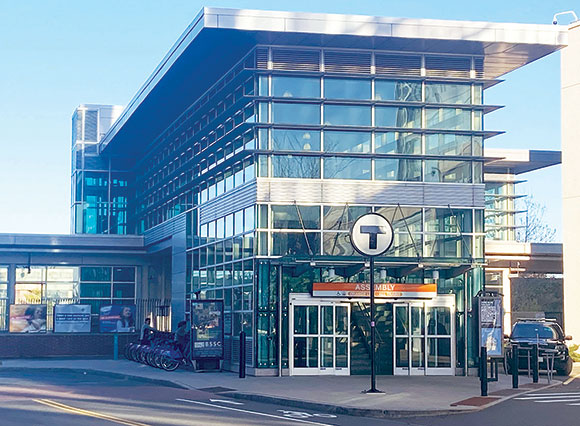
The Riders’ Transportation Access Group (RTAG) is working with the MBTA to help find solutions to current platform gap problems. — Photo by Bobbie Toner
By Micah Levine
Back in October, the Riders’ Transportation Access Group (RTAG) came together with MBTA officials to assess the increasing concern of platform gaps throughout many orange line stations. A rider survey conducted in September by the MBTA demonstrated a rise in concern over the prevalence and severity of these gaps, prompting the federal institution to take official action in direct conjunction with RTAG. These hazardous conditions raised the attention of the community-based group, whose mission is to ensure that riders with disabilities have their civil right to utilize public transit equally and effectively.
Platform gaps resemble the wide (horizontal gap) and/or uneven (vertical gap) space between platform and train car; they commonly occur in aging transit systems and are caused mostly by the gradation of the spatial relationship between track and platform edge.
Preliminary findings by the MBTA earlier this year showed many orange line stations, particularly along Jamaica Plain’s southwest corridor, exhibiting consistent vertical and occasional horizontal gaps. (Both Assembly and Oak Grove stations showed gaps closer to the federal regulations due to the newness of their platforms, though Sullivan is host to considerable gaps.)
Furthermore, many riders criticized the quality of care taken with mobile bridge plates. These steel plates, required in heavy rail stations where gaps exceed minimum requirements, can be requested by riders to enter or exit the train over the gap. More than one group member expressed disappointment over the absence of bridge plates in particular stations, as well as overall negligence of certain Transit Ambassadors upon requesting the plate.
“I wasn’t surprised to hear that, often times, a station employee is not readily available to request the mobile bridge plate,” Jamaica Plain resident Colleen Flanagan expressed to the group. “That’s happened to me more times than I can count.” Community member Susan Backstrom later shared her experience with an Orange Line platform gap. Stopped at an unnamed Orange Line station, Backstrom stepped by the door to let other riders exit when her foot slipped through the gap. “I was kind of – I panicked. There were a couple of people that helped me [up]. I was really afraid that I’d lose my shoe.”
“It wouldn’t be the first time that I lost something in the pit,” Backstrom said.
“Eliminating the existence of excessive gaps is essential,” System-Wide Accessibility AGM Laura Brelsford shared in an exclusive interview. “Given our commitment to becoming a best-in-class system, we have no choice but to prioritize and resolve this issue.” Brelsford also indicated the sense of unity across multiple departments, noting the urgency with which the MBTA is working to fully restore these gaps to federal and state regulations.
Once the consulting engineer finishes compiling initial data into a comprehensive analysis, the MBTA will begin preparations to fix the orange line’s platform gaps. Internal conversation suggests platform gaps pertain to infrastructure issues rather than individual vehicles; one can therefore anticipate changes to the track beds themselves as well as platform modifications over the coming year. For now, the MBTA has installed rub rail in stations with significant horizontal gaps, and portions of certain platforms have been modified to minimize the gap until the primary solutions are clear.
“This shouldn’t be this way,” Braintree resident Joanne Daniels-Finegold voiced near the end of the meeting. “You have to know the territory. You have to know which platforms you know will have the vertical gaps…you have to prepare for it, or just not use that platform or station.” As the MBTA proceeds to mend the gap, RTAG inches one step closer to achieving its ultimate mission of equal rights in public transit.
Micah Levine is a student at Lesley University, where he studies counseling psychology. He resides in Cambridge and enjoys ‘70s movies.
Very special thanks to Dr. Frank Trocco for his invaluable support.

















Reader Comments